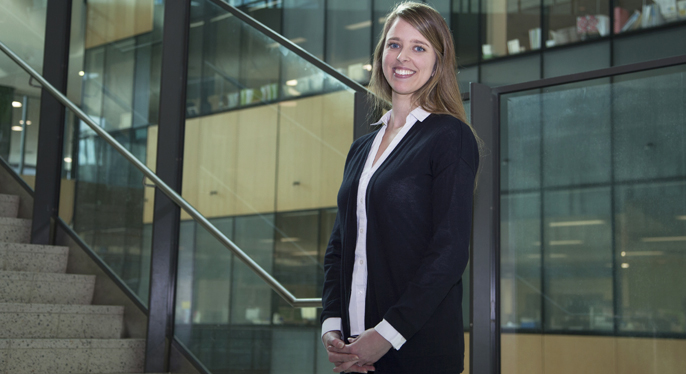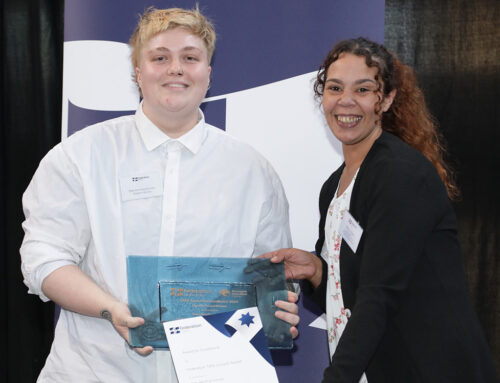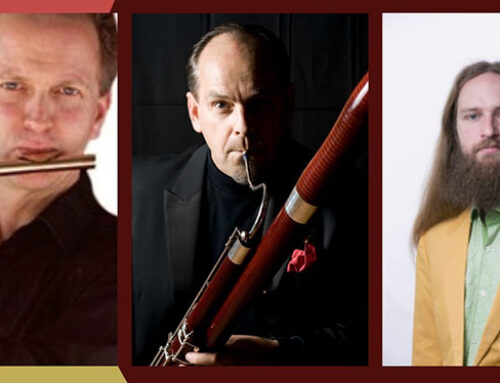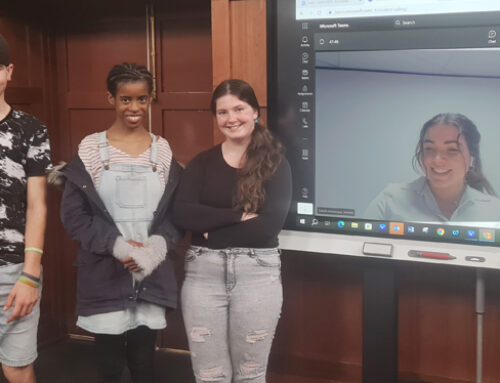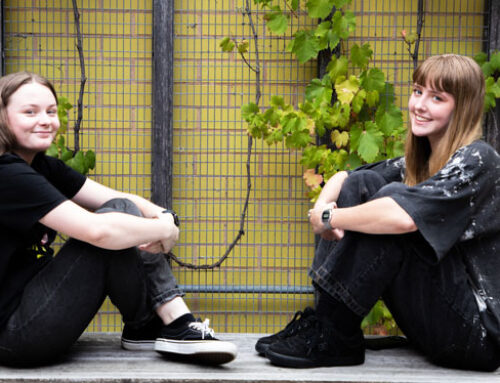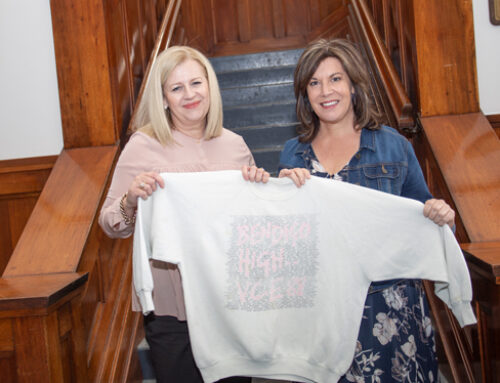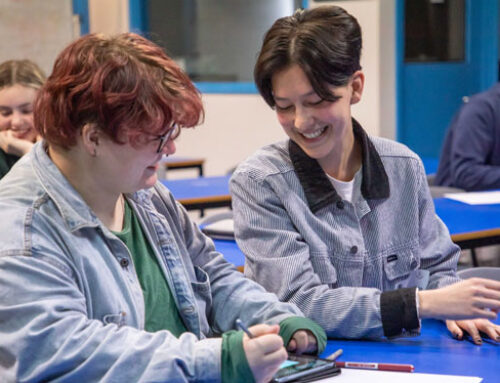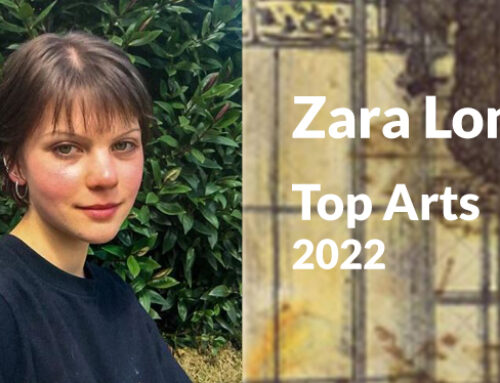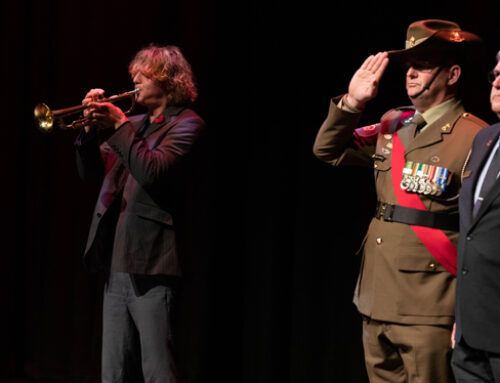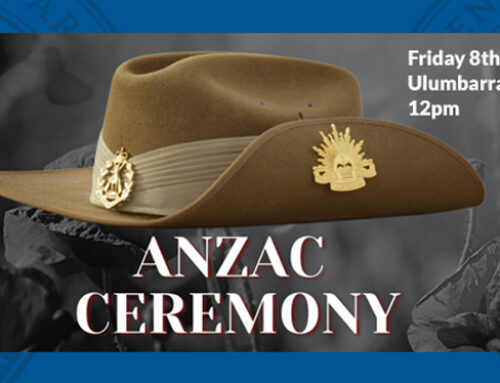Nicole Lake – Class of 2006
For this BSSC Alumna, a new approach to genetic analysis could end the ‘diagnostic odyssey’ faced by families of children with baffling, often fatal, inherited diseases.
When Nicole Lake attributes her success in the field of genetic research to “following her nose” there’s clearly some understatement going on. But for this BSSC Alumna, there’s also a sense of serendipity that stretches back a dozen years to her days as a VCE student.
“I loved my time at BSSC,” Nicole says. “The independent learning style really suited me and allowed me to develop initiative and self-motivation… two things you really need at uni and in scientific research.”
What began all those years ago with a VCE program steeped in Maths and Science has led Nicole on a journey of study and research into the cutting edge of genetic analysis. Her work at the Murdoch Children’s Research Institute (MCRI) over the past five years has helped to improve diagnostic rates for children with baffling and often fatal mitochondrial diseases.
And it’s turning heads internationally. Later this year, Nicole will join the Department of Genetics at Yale University. Not bad for a Bendigo girl whose favourite memories of school involve meeting up with her friends in Rosalind Park each day, and hanging out with like-minded Maths-Science students in her Chemistry and Biology classes.
“I just remember it being a great environment in those classes,” Nicole says. “I was one of those students who always went to the teachers with questions, and they always went out of their way to help. That’s one of the great strengths of the college—the effort teachers put in to help you succeed.”
During Year 12, Nicole worked on a small research program with the CSIRO, regularly travelling to Melbourne to visit the lab… her first taste of scientific research. In the summer of 2005/2006 she was also selected for the National Youth Science Forum in Canberra and, as a result, became the female representative for Australia at the Stockholm International Youth Science Seminar, run in conjunction with Nobel Prize Week.
“The Stockholm seminar was in December, so I missed out on Graduation,” Nicole remembers. “The VCE results came out the night I was at the Nobel dinner, so between courses, I was in the loo trying to get the results on my phone.” She smiles at the memory.
“It’s funny the things that come back to you. One of my most vivid memories from Year 12 is the day Steve Irwin died. It was definitely one of those ‘where were you when’ moments. Everyone in the corridors was talking about it.”
Nicole’s connection to the college also included a 12-month stint as a staff member. In 2007 she spent her gap year working as a Curriculum Assistant while completing a Certificate III in Business Administration. Ask any long-term staff at the college today and they remember Nicole.
“Nicole has this spark… a special energy about her,” Curriculum Program Manager Paul Seery says. “We all knew she’d do great things.”
The following year, she began a Bachelor of Science at the University of Melbourne that included a year overseas at the University of Edinburgh on student exchange.
“The exchange was great,” she says. “Not just because Edinburgh is a beautiful city, but because the learning style was so different. It was difficult to begin with, but when I returned to Australia I really felt like I’d got ahead of the pack.”
Towards the end of her degree, Nicole realised that research was something she had a passion for.
“I enrolled in a ‘Master of Science – Genetics’ and began working on a full-time research project at the Baker Heart & Diabetes Institute, identifying genes that control levels of good cholesterol. It gave me my first real taste of the world of medical research and I loved it.
“This is where the ‘following my nose’ bit kicks in,” Nicole says. “It really was the catalyst for my PhD and the past five years working at the MCRI. I’ve essentially learnt the skills to be a scientist—scientific writing, presenting, analysing data, conducting experiments, and working with a team of students, scientists and lab assistants.”
During her PhD, Nicole identified mutations in a gene called MRPS34, in patients with the most common form of childhood mitochondrial disease, Leigh Syndrome. She describes the process as like trying to find a single typo amongst 3,000,000,000 letters.
“To put it simply, genes are like the recipe for the building blocks of the human body,” Nicole says. “If the recipe is missing eggs, for example, the cake won’t work. If you have a problem with a gene it can be devastating to your health.”
At Yale, Nicole will be working with cutting edge technologies and a new team, something she’s really excited about.
“Currently, genetic tests fail to find a diagnosis in nearly half of all children affected by a serious genetic disorder,” she says. “The Yale project will use newly-developed genetic technology to identify the causes of genetic disease and will help to improve outcomes for affected children and their families.
“Scientific research is definitely a rollercoaster ride. When you have success it’s wonderful, but there’s also a lot of rejection along the way. I never take it for granted… I’m lucky to do what I do.”

